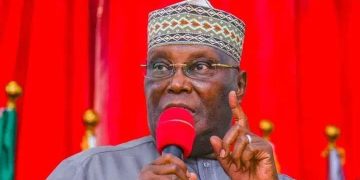Atiku Abubakar, a name that echoes through Nigeria’s political and economic corridors, stands as a formidable figure whose life story intertwines personal triumph with the nation’s tumultuous democratic journey, rising from a modest Fulani village in Adamawa State to serve as Vice President from 1999 to 2007 and relentlessly pursuing the presidency across six bids.
Born on November 25, 1946, in Jada—then part of British Cameroons—Atiku’s path began with the loss of his father at age 11, propelling him from a reluctant student to a customs officer, a wealthy businessman, and a political heavyweight whose influence spans decades.
At 78, his narrative is one of resilience, shaped by a 20-year career in the Nigeria Customs Service, a business empire including Intels and the American University of Nigeria, and a political career that has seen him navigate party lines and national controversies with unwavering ambition.
This Atiku Abubakar biography delves into the multifaceted legacy of a man whose contributions and controversies have left an indelible mark on Nigeria, offering a window into the interplay of education, enterprise, and power in Africa’s most populous nation.
From his early struggles to access Western education against his father’s wishes to his transformative vice-presidency under Olusegun Obasanjo—where he spearheaded economic reforms like the GSM revolution—to his persistent presidential campaigns, most recently in 2023, Atiku’s story reflects both the promise and the pitfalls of Nigerian governance.
His wealth, estimated in the billions, and his educational initiatives, like founding AUN, stand alongside allegations of corruption and electoral setbacks, painting a portrait of a leader whose impact is as debated as it is undeniable.
What follows is an in-depth exploration of his early years, career before politics, political ascent, key achievements, personal life, and the evolving legacy of a statesman whose journey continues to shape Nigeria’s political discourse as of April 4, 2025.
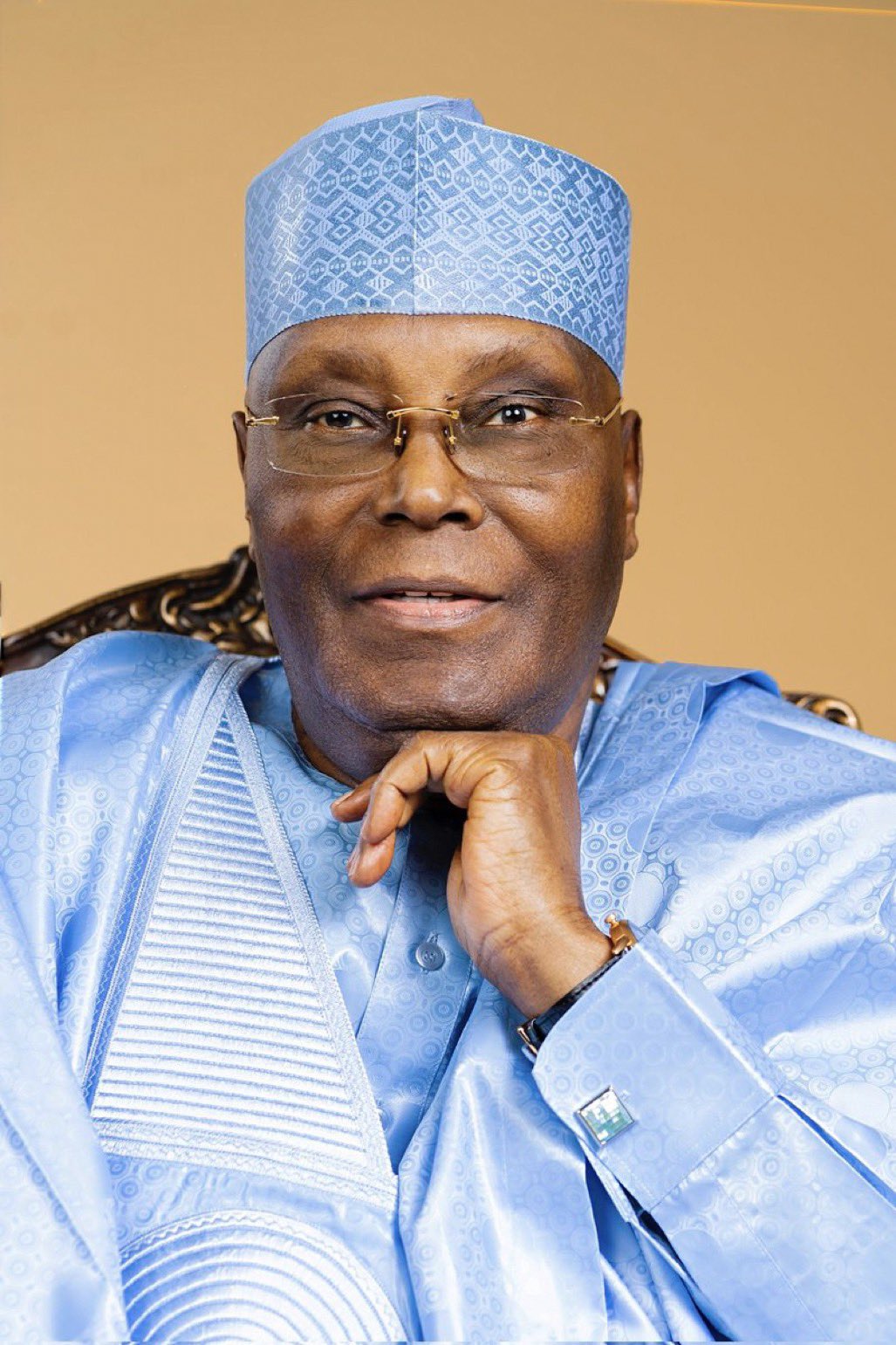
Bio-Data
| Name | Atiku Abubakar |
| Date of Birth | November 25, 1946 |
| Age | 78 years old |
| Place of Birth | Jada, Adamawa State, Nigeria (then part of British Cameroons) |
| Spouse(s) | Currently married to Titilayo “Titi” Albert (1971), Princess Rukaiyatu Mustafa (1983), and Fatima Shettima (1986); previously married to Ladi Yakubu (divorced) and Jennifer Iwenjiora Douglas (divorced 2022) |
| Religion | Islam |
| Political Affiliation | Peoples Democratic Party (PDP) |
| Net Worth | Estimated at $1.4–1.8 billion USD (based on various reports and his business ventures.) |
| Source | Bsgistnews.com |
Early Life and Education
Atiku Abubakar was born on November 25, 1946, in Jada, a village in what was then the British Cameroons, a territory that joined Nigeria in 1961 following a referendum.
His father, Garba Abubakar, was a Fulani trader and farmer from Wurno, Sokoto State, who settled in Kojoli, Adamawa State, while his mother, Aisha Kande, hailed from a family with roots in Dutse, Jigawa State.
Atiku became an only child after his sister died in infancy, and his father drowned in 1957 while crossing a river, leaving him under his mother’s care.
His father opposed Western education, preferring Atiku to pursue traditional Islamic learning or trading, but when authorities enforced mandatory schooling, Garba was briefly jailed until Aisha’s mother paid a fine.
Atiku began his education at eight, attending Jada Primary School from 1954 to 1960.
He progressed to Adamawa Provincial Secondary School in Yola in 1960, graduating in 1965 with a Grade Three West African School Certificate.
After a brief stint at the Nigeria Police College in Kaduna, he left due to lacking an O-Level Mathematics result and worked as a tax officer in the Regional Ministry of Finance.
In 1966, he enrolled at the School of Hygiene in Kano, earning a Diploma in 1967 while serving as Interim Student Union President.
That year, he secured a scholarship to study for a Law Diploma at Ahmadu Bello University’s Institute of Administration, graduating in 1969 amid the Nigerian Civil War.
Decades later, in 2021, he completed a Master’s degree in International Relations at Anglia Ruskin University, Cambridge, UK, showcasing his lifelong commitment to education.
Atiku Abubakar’s Career Before Politics
Atiku’s professional career began with the Nigeria Customs Service in 1969, where he served for 20 years, rising to Deputy Director—the second-highest rank—before retiring in April 1989.
His tenure at Customs, particularly at Apapa Ports, laid the foundation for his business ventures.
In the 1970s, he partnered with Italian businessman Gabrielle Volpi to establish Nigeria Container Services (NICOTES), later rebranded as Intels Nigeria Limited, a logistics firm that became a cornerstone of his wealth.
He ventured into real estate, building properties in Yola with a modest loan, and in 1981, he launched a 2,500-hectare maize and cotton farm near Yola, though it folded by 1986.
Other enterprises include Adama Beverages Limited, an animal feed factory, and the American University of Nigeria (AUN) in Yola, founded in 2005 as Sub-Saharan Africa’s first American-style private university.
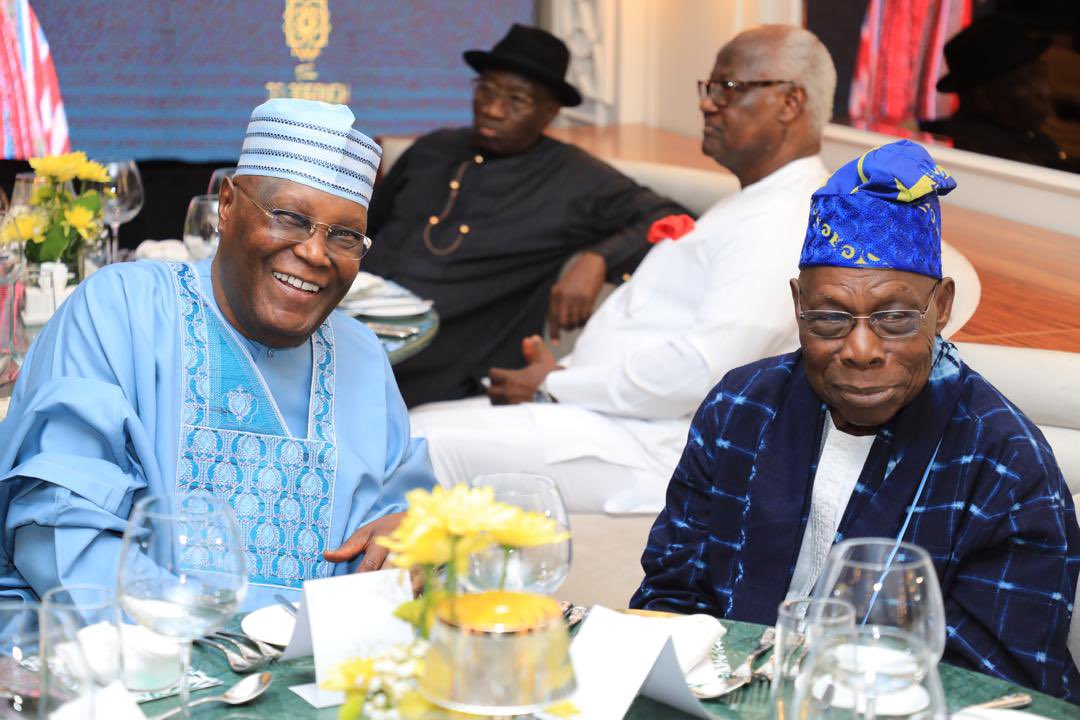
Political Career
Atiku’s political journey began in the 1980s, working behind the scenes on Bamanga Tukur’s gubernatorial campaign in Gongola State (now Adamawa and Taraba).
He met Shehu Musa Yar’Adua, a former military second-in-command, who mentored him and drew him into the Peoples Front of Nigeria (PFN).
In 1989, Atiku became PFN’s National Vice-Chairman and won a seat in the Constituent Assembly shaping Nigeria’s constitution.
He ran for Gongola State governor in 1990 but was disqualified, and in 1993, he placed third in the Social Democratic Party (SDP) presidential primaries, stepping aside for Moshood Abiola.
In 1998, he joined the Peoples Democratic Party (PDP), won the Adamawa State governorship, and before taking office, was selected as Olusegun Obasanjo’s running mate, becoming Vice President on May 29, 1999, a role he held until 2007.
As Vice President, Atiku chaired the National Council on Privatization, overseeing the sale of state enterprises and driving telecom, pension, and banking reforms that spurred economic growth.
His fallout with Obasanjo over a third-term bid led him to the Action Congress (AC) in 2006, where he ran for president in 2007, placing third.
He returned to PDP, lost the 2011 primary to Goodluck Jonathan, joined the All Progressives Congress (APC) in 2014, and lost the 2015 primary to Muhammadu Buhari.
Back with PDP by 2017, he secured the presidential ticket in 2019 and 2023, losing both times to Buhari and Bola Tinubu, respectively, though he challenged the 2023 results alongside Peter Obi, alleging electoral flaws.
Major Achievements
Atiku’s vice-presidency catalyzed economic reforms, notably the GSM revolution and banking consolidation, creating jobs and boosting GDP.
His business empire, including Intels and AUN, employs thousands, with AUN earning acclaim for educational innovation.
Politically, he won 25 constitutional cases, including one preventing unilateral vice-presidential sackings, bolstering democratic checks.
His philanthropy, like founding AUN, reflects his belief in education as a transformative force, a view shaped by his own struggles to access schooling.
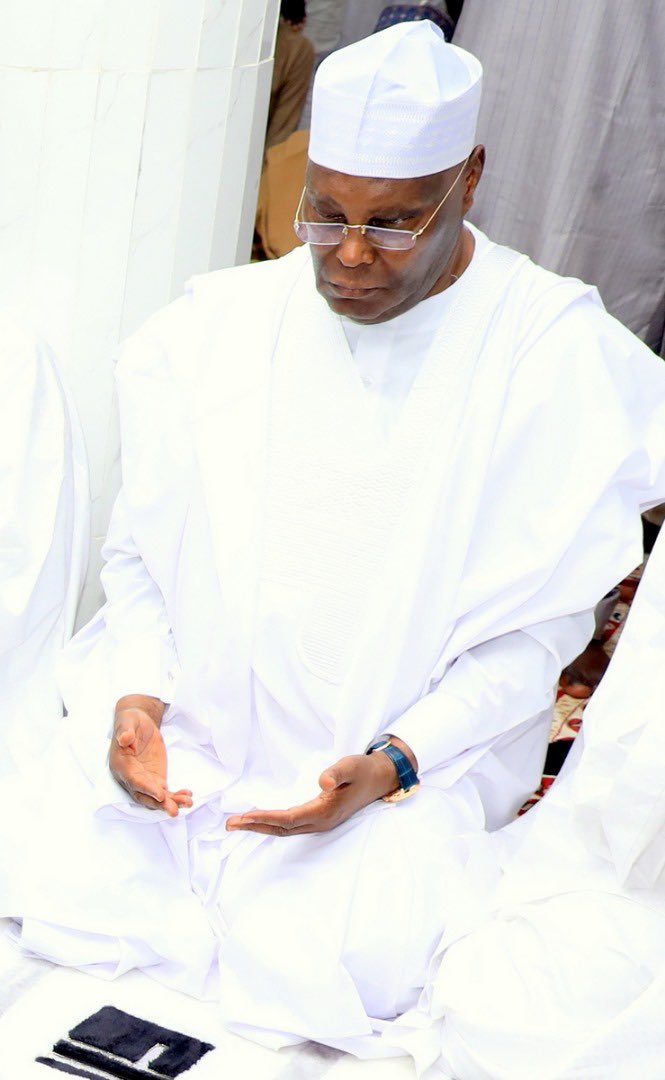
Atiku’s Personal Life
Atiku, a Fulani Muslim, has embraced polygamy to build a large family, citing his lonely childhood.
He has 28 children from five wives, though he adheres to the Islamic limit of four concurrent marriages. In 1971, he secretly married Titilayo “Titi” Albert (children: Fatima, Adamu, Halima, Aminu); in 1979, Ladi Yakubu (six children, later divorced); in 1983, Princess Rukaiyatu Mustafa (seven children); in 1986, Fatima Shettima (seven children, including twins); and after divorcing Ladi, Jennifer Iwenjiora Douglas (three children), who confirmed their divorce in 2022.
His family spans business, politics, and academia, with his wives often described as advisors and companions.
Legacy and Impact
As of April 4, 2025, Atiku Abubakar, at 78, remains a towering yet polarizing figure in Nigerian politics.
His six presidential bids (1993, 2007, 2011, 2015, 2019, 2023) underscore his persistence, though critics question his electability.
His wealth—estimated at $1.4–1.8 billion—fuels both admiration and corruption allegations, including a 2010 U.S.
Senate report claiming he moved $40 million in “suspect funds” via his wife’s accounts, charges he denies as politically motivated.
His advocacy for restructuring Nigeria into a true federal system has gained traction, particularly in the South-East and South-South, positioning him as a champion of state autonomy.
AUN and his economic reforms endure as tangible legacies, yet his narrative is shadowed by unproven graft claims and his inability to clinch the presidency, leaving his story as one of resilience, ambition, and unresolved controversy in Nigeria’s democratic evolution.
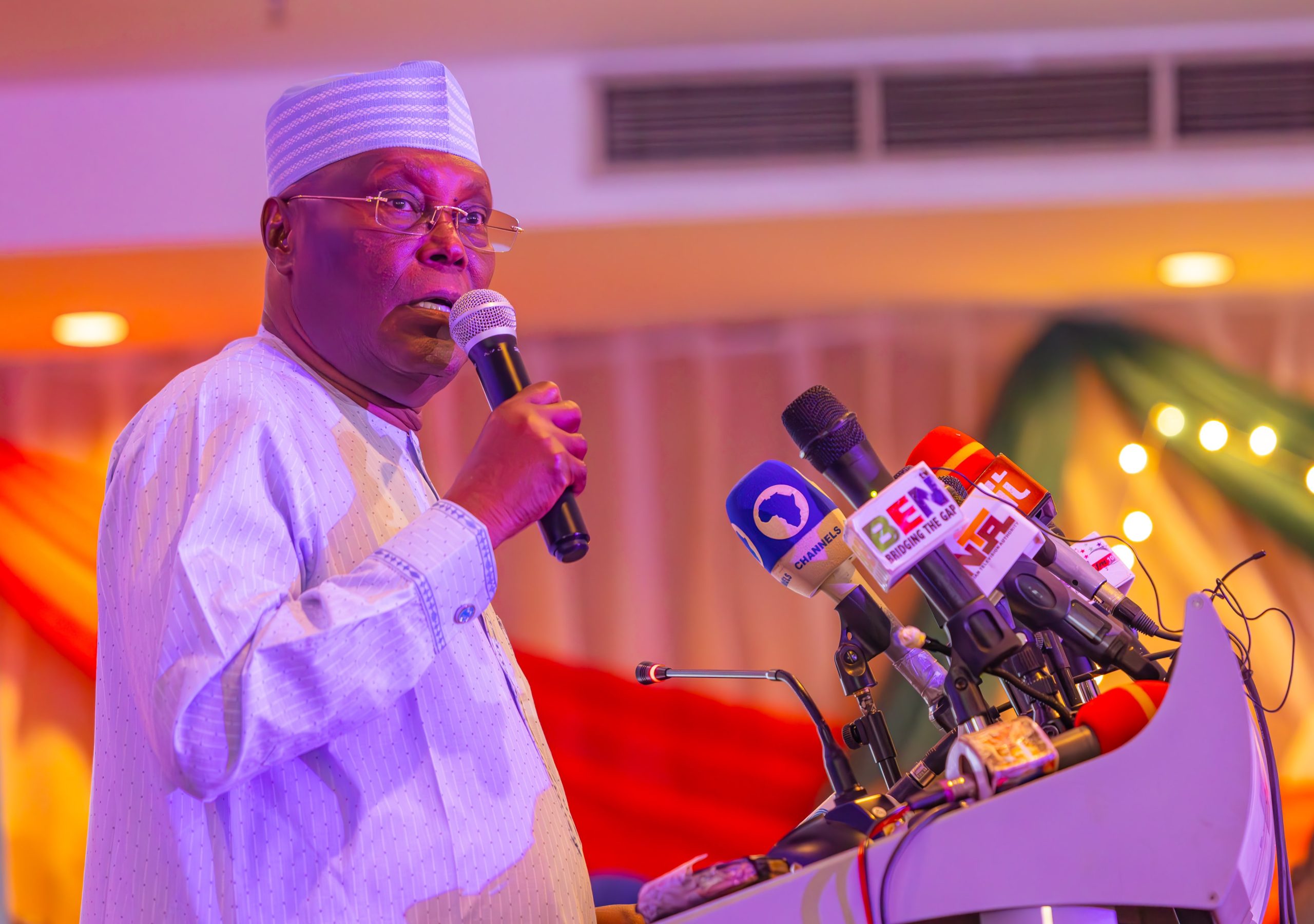
Conclusion
Atiku Abubakar’s journey through Nigeria’s socio-economic and political landscapes stands as a testament to the enduring power of ambition, intellect, and resilience, a narrative that stretches from the quiet Fulani village of Jada to the frenetic heart of national politics in Abuja.
Born on November 25, 1946, Atiku rose from the shadow of his father’s early death and a childhood marked by limited means to become a customs officer, a business magnate, and Nigeria’s Vice President from 1999 to 2007, leaving an imprint that reverberates through his six presidential campaigns, the latest in 2023.
At 78, his career—spanning a transformative vice-presidency, a sprawling business empire including Intels and the American University of Nigeria (AUN), and a persistent quest for the presidency—reflects a man whose life mirrors Nigeria’s own struggles for progress amid complexity, positioning him as a central figure in the nation’s democratic evolution as of April 4, 2025.
Atiku’s legacy is a mosaic of monumental achievements and persistent controversies.
His vice-presidency catalyzed economic reforms—ushering in the GSM revolution, banking consolidation, and privatization—that spurred growth and connectivity, while his establishment of AUN in 2005 redefined educational access in Sub-Saharan Africa, earning accolades for innovation.
Politically, his 25 constitutional victories, including safeguarding the vice-presidential office from arbitrary dismissal, bolstered Nigeria’s democratic framework, and his advocacy for restructuring has galvanized calls for federalism.
Yet, this narrative is tempered by shadows—unproven corruption allegations, including a 2010 U.S. Senate report on $40 million in “suspect funds,” and his inability to secure the presidency despite repeated bids have fueled critics who question his integrity and electability.
His wealth, estimated between $1.4 and $1.8 billion, amplifies both his influence and the scrutiny he faces, a duality that defines his public persona.
On a personal level, Atiku’s life—married to five women over time, father to 28 children, and a devout Fulani Muslim—reveals a man who turned a solitary childhood into a sprawling familial network, blending tradition with a modern outlook.
His latest electoral challenge in 2023, alongside Peter Obi, against Bola Tinubu’s victory, underscores his unrelenting drive, even as age and political shifts test his relevance.
As of April 4, 2025, Atiku Abubakar remains a polarizing titan—celebrated for economic vision and philanthropy, critiqued for perceived opportunism and unresolved graft claims.
Whether history will crown him a near-miss statesman or a symbol of Nigeria’s governance paradoxes, his impact—from Adamawa’s classrooms to the national stage—endures as a complex legacy, a reflection of a leader whose story continues to provoke debate and inspire aspiration in Nigeria’s ongoing quest for identity and stability.
Frequently Asked Questions on Atiku Abubakar
1. Who is Atiku Abubakar?
Atiku Abubakar is a Nigerian politician, businessman, and former Vice President (1999–2007), known for his six presidential bids, most recently in 2023, and his role in the Peoples Democratic Party (PDP).
2. When and where was Atiku Abubakar born?
He was born on November 25, 1946, in Jada, Adamawa State, Nigeria (then part of British Cameroons).
3. What is Atiku Abubakar’s age in 2025?
As of April 4, 2025, he is 78 years old.
4. What is Atiku Abubakar’s ethnic background?
He is Fulani, with roots tracing back to Wurno, Sokoto State, via his father, Garba Abubakar.
5. What is Atiku Abubakar’s educational background?
He holds a Diploma from the School of Hygiene, Kano (1967), a Law Diploma from Ahmadu Bello University (1969), and a Master’s in International Relations from Anglia Ruskin University, UK (2021).
6. What religion does Atiku Abubakar practice?
He is a devout Muslim, adhering to Islamic traditions, including polygamy.
7. What did Atiku Abubakar do before entering politics?
He worked 20 years in the Nigeria Customs Service (1969–1989), retiring as Deputy Director, and built a business empire in logistics, real estate, and education.
8. What businesses does Atiku Abubakar own?
He co-founded Intels Nigeria Limited, owns Adama Beverages Limited, a real estate portfolio, and established the American University of Nigeria (AUN) in 2005.
9. What is Atiku Abubakar’s net worth?
His net worth is estimated at $1.4–1.8 billion USD, derived from his businesses, though exact figures remain unofficial and debated.
10. When did Atiku Abubakar become Vice President of Nigeria?
He was sworn in as Vice President on May 29, 1999, serving under President Olusegun Obasanjo until May 29, 2007.
11. What political parties has Atiku Abubakar been part of?
He started with the Peoples Front of Nigeria (PFN), joined the PDP (1998), moved to the Action Congress (AC) in 2006, returned to PDP, joined the All Progressives Congress (APC) in 2014, and rejoined PDP in 2017.
12. How many times has Atiku Abubakar run for president?
He has contested six times: 1993 (SDP), 2007 (AC), 2011 (PDP), 2015 (APC), 2019 (PDP), and 2023 (PDP), losing each time.
13. Why did Atiku Abubakar lose the 2023 presidential election?
He lost to Bola Tinubu (APC), who won with 8.8 million votes to Atiku’s 6.9 million; Atiku and Peter Obi challenged the results, alleging fraud, but the Supreme Court upheld Tinubu’s victory in October 2023.
14. What is Atiku Abubakar’s current political role?
As of April 4, 2025, he holds no official position but remains a prominent PDP leader and potential 2027 candidate.
15. What was Atiku Abubakar’s role as Vice President?
He chaired the National Council on Privatization, driving telecom, pension, and banking reforms that boosted Nigeria’s economy.
16. What are Atiku Abubakar’s key achievements as Vice President?
He spearheaded the GSM revolution, banking consolidation, and privatization, creating jobs and economic growth from 1999 to 2007.
17. What is the American University of Nigeria (AUN)?
Founded by Atiku in 2005 in Yola, AUN is Sub-Saharan Africa’s first American-style private university, a flagship of his educational legacy.
18. What corruption allegations has Atiku Abubakar faced?
A 2010 U.S. Senate report alleged he moved $40 million in “suspect funds” via his wife Jennifer’s accounts; he denies this, calling it political sabotage.
19. Why is Atiku Abubakar controversial?
His wealth, party-switching, and graft allegations—like a 2006 EFCC probe into $125,000 in misappropriated funds—fuel debate, though no convictions exist.
20. What is Atiku Abubakar’s stance on restructuring Nigeria?
He advocates for true federalism, devolving power to states, a position popular in the South-East and South-South.
21. Who is Atiku Abubakar married to?
He has five wives over time: Titilayo “Titi” Albert (1971), Ladi Yakubu (1979, divorced), Princess Rukaiyatu Mustafa (1983), Fatima Shettima (1986), and Jennifer Iwenjiora Douglas (divorced 2022).
22. How many children does Atiku Abubakar have?
He has 28 children from his five wives, building a large family inspired by his lonely childhood.
23. Why does Atiku Abubakar practice polygamy?
As a Muslim, he adheres to Islamic allowances for up to four wives at a time, citing personal fulfillment after being an only child.
24. What awards has Atiku Abubakar received?
He’s been honored for business and philanthropy, notably for AUN, though specific awards are less publicized than his political feats.
25. How is Atiku Abubakar perceived in Nigeria?
Supporters laud his economic vision and resilience; critics see him as opportunistic, citing his wealth and electoral losses.
26. Will Atiku Abubakar run for president again in 2027?
At 78, he hints at another bid, telling Channels TV in January 2025, “I’m not tired,” though age and PDP dynamics may challenge him.
27. What is Atiku Abubakar’s legacy as of 2025?
His legacy blends economic reform, educational innovation, and political persistence with unresolved corruption claims and electoral setbacks, a complex figure in Nigeria’s story.
